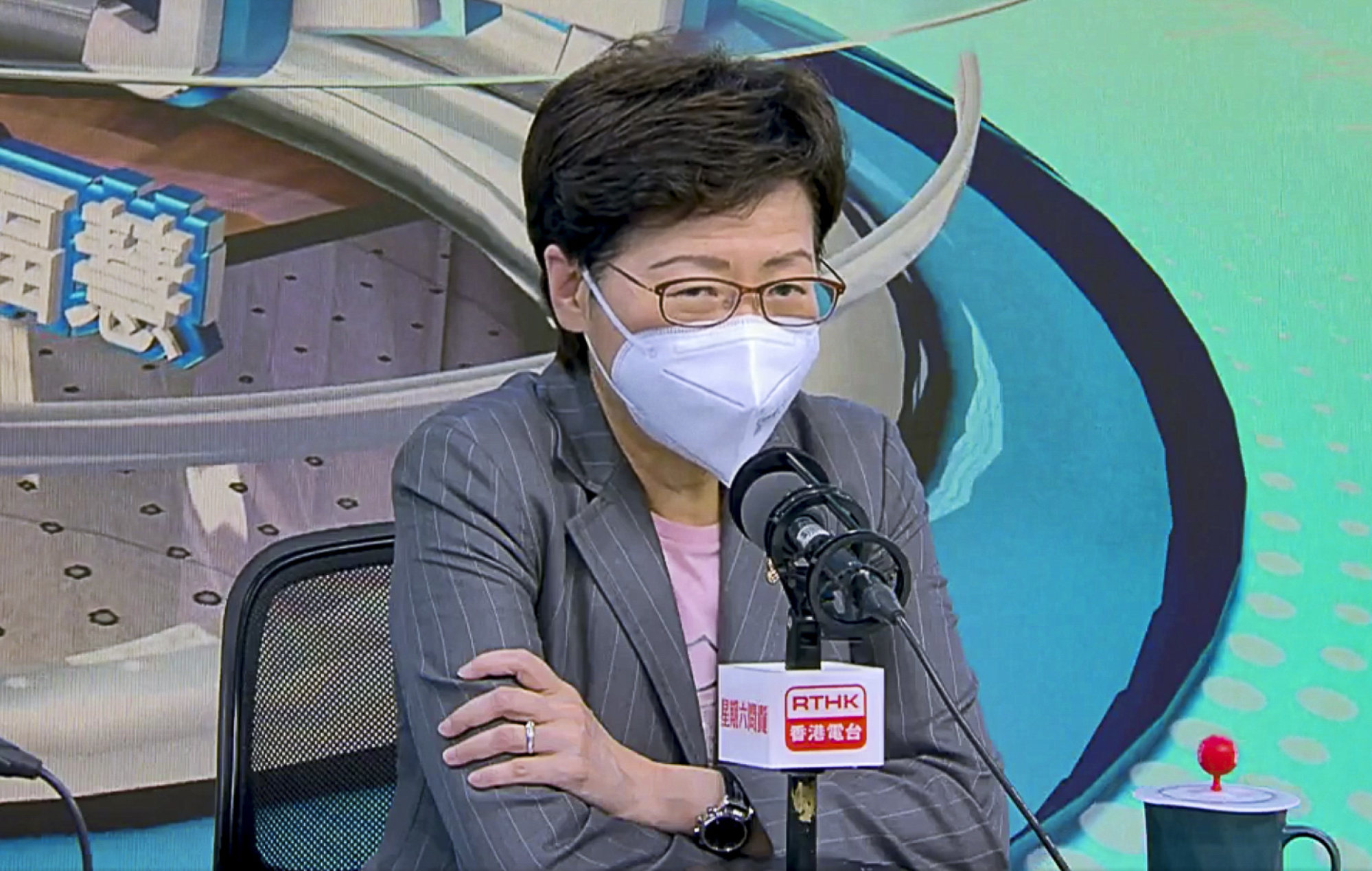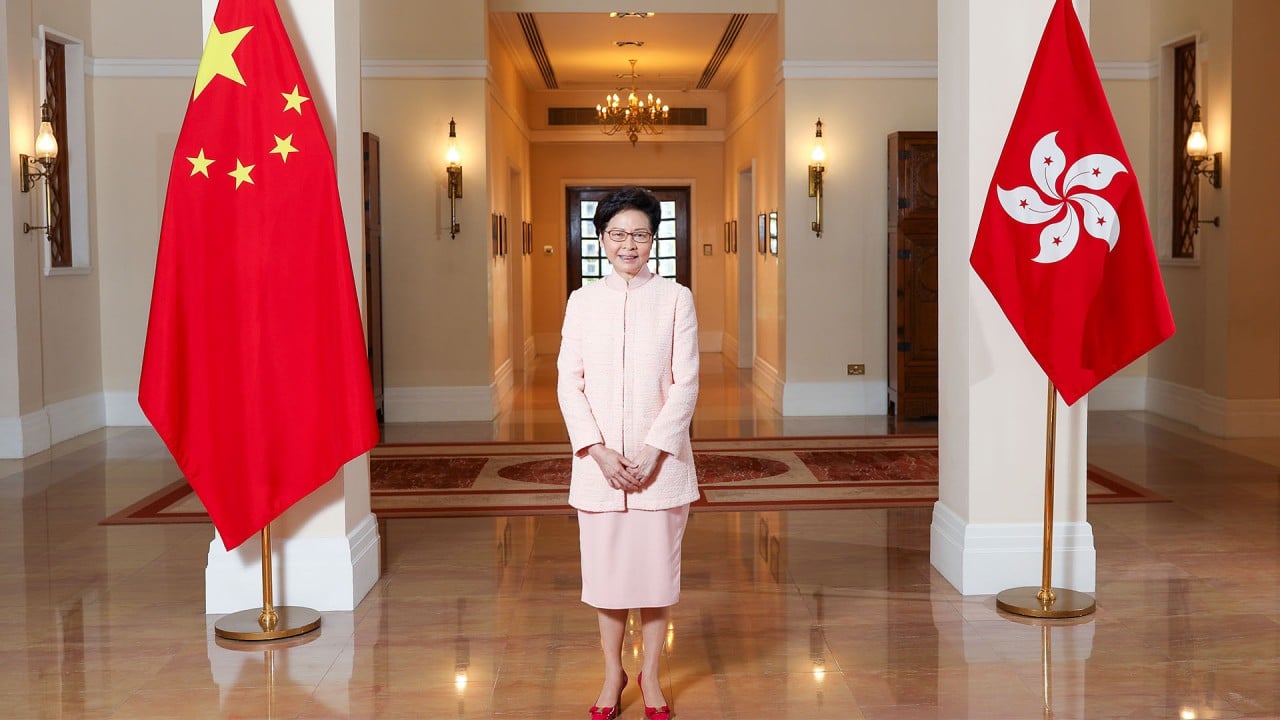
Hong Kong protests: ‘no regrets’ over extradition bill bid, Carrie Lam insists, saying apology in 2019 was for poor communication on legislation
- City leader doubles down on decision to push contentious, now-shelved legislation that sparked months of social unrest in city
- She admits officials at the time did not explain the bill properly to residents
Chief Executive Carrie Lam Cheng Yuet-ngor, who will step down from her post in three weeks, maintained on a Saturday radio programme that the controversial law was needed to prevent the city from becoming a haven for fugitives.
“I’ve never expressed any regret over pushing for the extradition bill … nor have I ever thought the government had done anything wrong in this regard,” she said. “On the contrary, the government had the courage to handle a problem which had been left untouched for a long time.”
Lam said she still held firm belief on the need to enact the legislation to prevent criminals from hiding in the city, adding “this is our international obligation”.
The bill was proposed in February 2019, which would have allowed for the transfer of fugitives to jurisdictions with which the city has no such agreement, including mainland China.
At the time, the government said the bill was aimed at plugging loopholes exposed by a homicide case the previous year. Murder suspect Chan Tong-kai, a Hongkonger, was believed to have killed his pregnant girlfriend while the couple were holidaying in Taiwan, with the former later returning to the city. Chan could not be extradited to the self-ruled island for investigations because of a lack of such an arrangement between both governments.

He served jail time in Hong Kong for money laundering and was released in October 2019 under police protection.
Critics said the extradition bill was formulated with little consultation, with the opposition camp and business sector up in arms over its implications. Fearing their freedoms would be violated, residents took to the streets in June 2019 in massive protest marches that organisers said numbered in the millions.
Lam suspended the bill on June 15 that year and would declare it “dead” the next month, but the moves did little to defuse the increasingly violent protests which later morphed into a months-long anti-government campaign marked by bloody clashes between demonstrators and police.

On Saturday, Lam recalled that apology was in response to the government’s poor communication and lobbying work over the bill’s enactment. She added this was why she had proposed enhancing communication with the public in her policy address last year.
“I apologised at the time because the government did a poor job in communicating the legislative work to the public,” she admitted.
“The responsible officials for the bill did not take the explaining work seriously. They didn’t even attend any question and answer session and explain the documentation … In those months, we missed the opportunity to explain the bill to the public till it was too late.”
Incoming chief executive John Lee Ka-chiu was at the time the city’s security minister, among principal officials responsible for the bill.
Although Lam on Saturday expressed pain over a large number of young protesters arrested in the unrest, she said the government must uphold the rule of law and not give a false impression to young people that problems could be resolved through violence.
Looking back on her five years in office, Lam said she felt relieved as tremendous responsibilities would be lifted from her shoulders.
“For me, the past five years have been very fulfilling. There have been big as well as comforting events that have taken place,” she said.
“But the most important thing is the ‘one country, two systems’ policy being back on the right track,” Lam added, referring to Beijing’s introduction of the national security law in 2020 and a revamped electoral system last year.
The outgoing leader stressed she had tried hard to mend Hong Kong’s social rifts in the early stages of her administration by holding out an olive branch to the opposition camp, such as arranging for the Legislative Council to lead a delegation comprising opposition lawmakers to visit Guangdong in 2018.
“But the eruption of the extradition protests showed this was not an easy task,” Lam added, pointing out that when contentious issues emerged, “the opposition would come out again, fiercer than before”.
She also defended her work on the housing front, saying her administration had rolled out the largest number of initiatives since the handover for people to climb up the ladder, including the provision of transitional flats and various forms of subsidised schemes.
On the property market, she pointed out that prices had only increased by 13.8 per cent as of April this year during her five-year term, compared with a rapid rise of 63.1 and 99.5 per cent under her predecessors Leung Chun-ying and Donald Tsang Yam-kuen, respectively.
“Property prices should be stabilised. But in the past four terms of government, there were drastic fluctuations. This has created a lot of problems,” she said.
“A healthy property market should ensure a stable supply of housing … I myself hope to make property prices stable to satisfy housing needs.”


